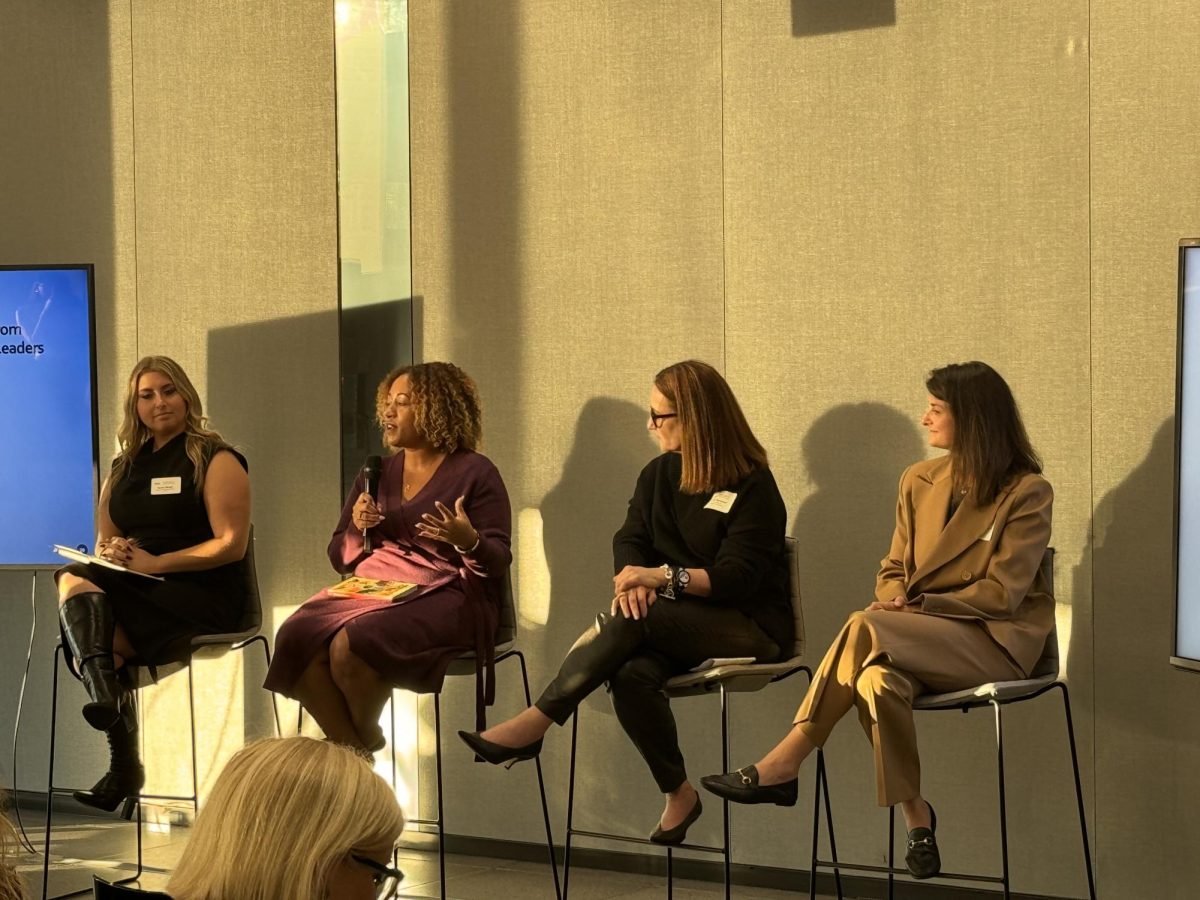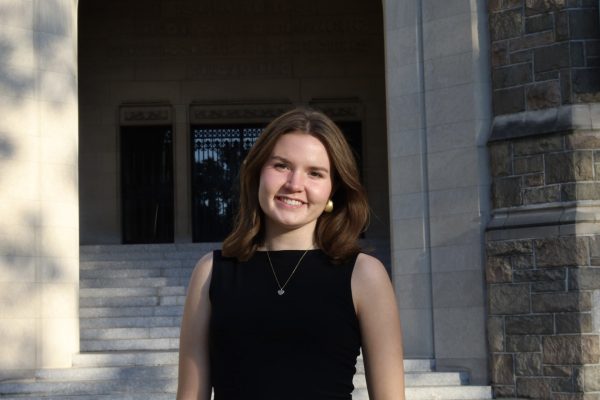Professors Aniko DeLaney and Dr. Genevieve O’Connor of Fordham University’s Gabelli School of Business presented a preview of their research, Marketing in a Polarized World, at an event in collaboration with the International Advertising Association (IAA) on Oct. 23. Over 70 attendees gathered at WPP’s offices on the 16th floor of 3 World Trade Center. The event, which ran from 4-7:30 p.m., featured a preview of O’Connor and DeLaney’s research, a panel with marketing executives and a networking social hour.
The event opened with O’Connor and DeLaney presenting a preview of their research concerning how Chief Marketing Officers (CMOs) and marketing executives are helping their brands navigate today’s polarized times while remaining true to their brand values. In today’s climate, brands have been facing heightened pressure to engage in social activism.
“We’ve seen that brands have faced significant pressure from consumers to get involved and take a stand on issues — purpose-driven marketing is a key example. There’s also been a lot of research that consumers’ behavior and attitudes change if a brand gets involved or doesn’t get involved,” said O’Connor.
O’Connor and DeLaney’s research suggests the pendulum is swinging back due to commercial pressures. Their initial findings, which are confirmed by recent secondary data, suggest that consumers are generally split on whether a brand should take a stand, with marketers asking what they should do.
“The objective of our research partnership with IAA and Fordham is that we know that we are all living in highly polarized times. We wanted to understand how CMOs and marketing executives are helping their brands navigate these polarized times and then offer best practices to their peers,” said DeLaney.
Dr. Mohammad Nejad, chair of the marketing area at Gabelli, is also participating in uncovering the theoretical explanations of the results and interpreting them to build informed recommendations.
“[Dr. Nejad and I] are looking at the theoretical underpinnings to build the foundation for our research,” said O’Connor. “We are hoping to better understand why and how people behave by looking through various theoretical lenses.”
During the first phase of their research, O’Connor and DeLaney interviewed over 20 CMOs and marketing executives across several industries including finance, fashion and media. The second phase includes surveying Fordham students and leveraging the IAA network to reach consumers of all demographics to ensure that the research reflects a diverse opinion base.
Gen Z is a particularly interesting population to study because they are focused on “values” and supporting brands that are making a positive impact on the world, but sometimes their consumer decisions are driven by “value” in terms of price, according to DeLaney.
To further illustrate the urgency and necessity of brand incident readiness to event attendees, DeLaney and O’Connor moderated a discussion panel including Carol Schuster, SVP of Marketing and Business Information at Lafayette 148 and president of IAA North America; Lisa Clunie, co-founder and CEO of JOAN Creative; Isys Caffey, SVP Communications Strategy at Stripe Theory; and Sarah Biegel, Demand Generation associate at Forbes.
The conversation touched on topics including the challenges of resonating with Gen Z’s values and the importance of having a crisis plan that engages all levels of business, from sales associates to CMOs.
Alaina Stanisci, GSB ’26, was involved in the planning of the event. As a marketing intern with the IAA, she kept detailed lists of attendees, sent invitation emails and wrote the event description and reminder emails. In addition, Fordham undergraduates and graduate students joined the event as volunteers and attendees.
“I think a major opportunity at this event for students was the networking social hour. Getting to talk to these people about what they do in their day-to-day, introducing yourself and making that connection is so valuable,” said Stanisci.
A follow-up event with IAA North America, hosted at Fordham’s Lincoln Center campus on March 27, 2025, will feature the synthesized research results and highlight several methods to help CMOs develop proactive strategies to navigate brand incidents, including best practice recommendations and frameworks to streamline the incident management process.
“We want to give brands a best practice guideline and we want to offer them a tool that they can use to help better understand how they can be authentic, be transparent and connect with consumers while adhering to their brand values,” said O’Connor.
“What we’re trying to do is help the CMO and marketing executive community because… it’s not an ‘if’ there will be a brand incident, it’s a ‘when,’” said DeLaney. “We will develop a framework and best practice guide to help the CMOs contain a brand incident and reduce the risk of it becoming a brand crisis.”









































































































































































































